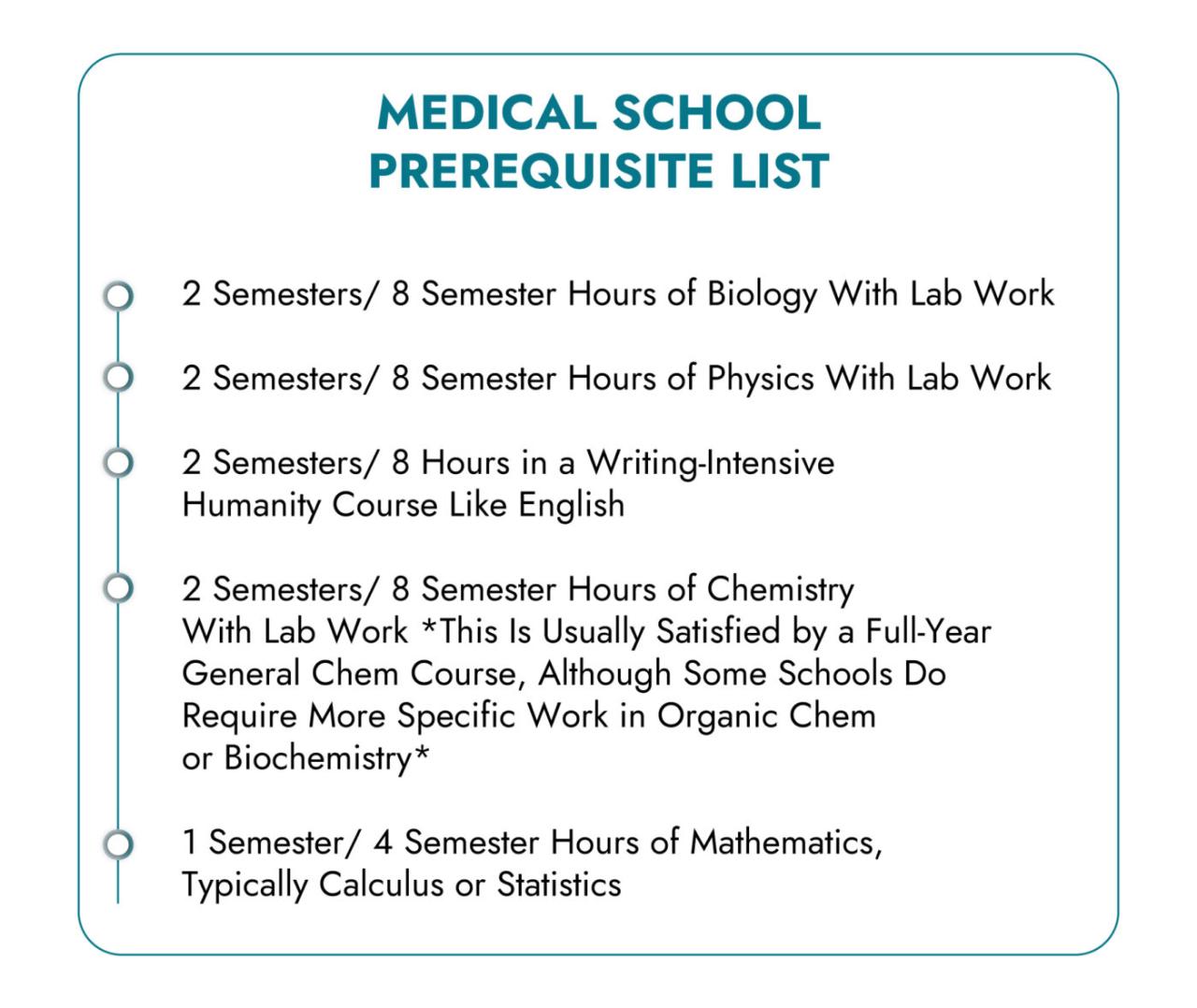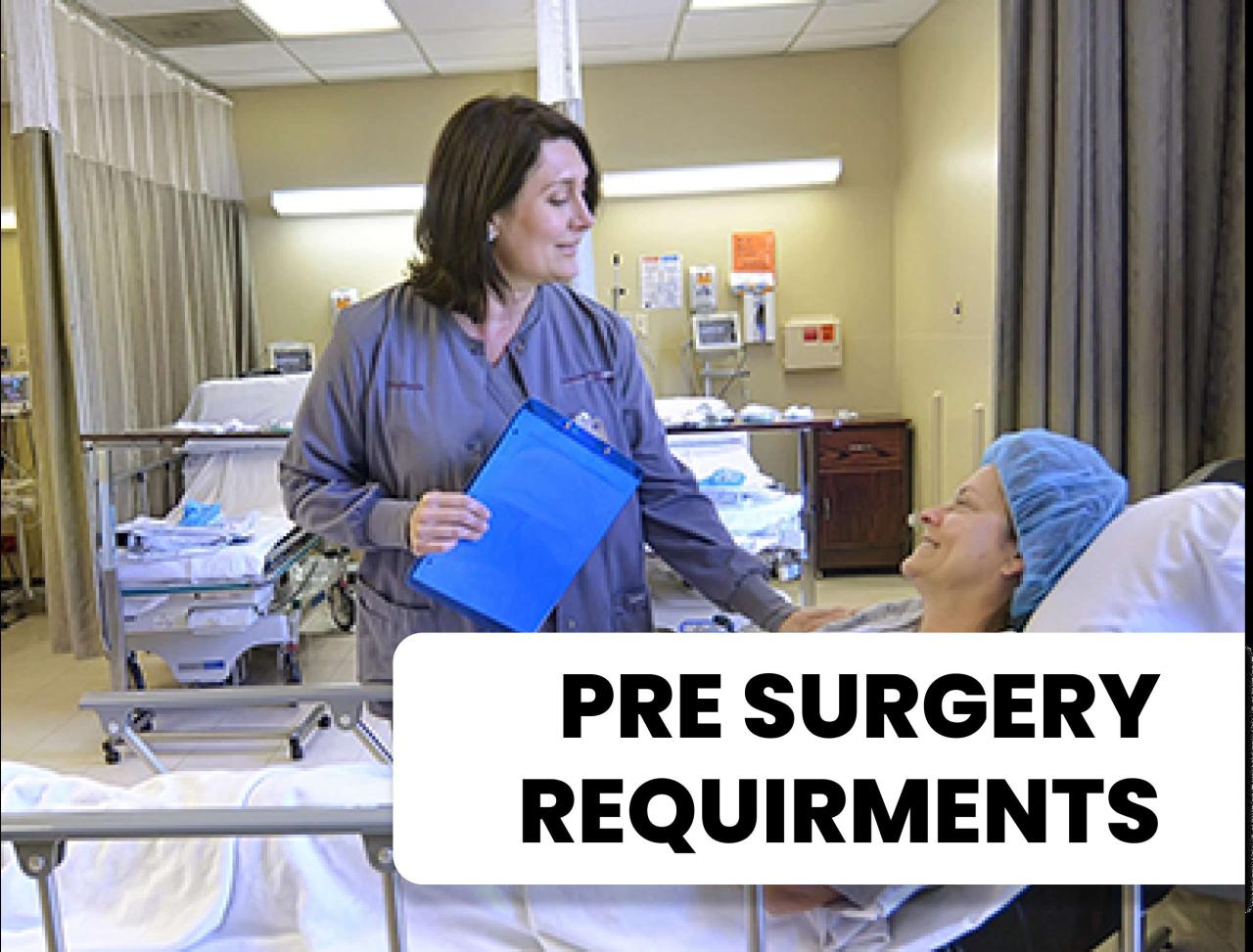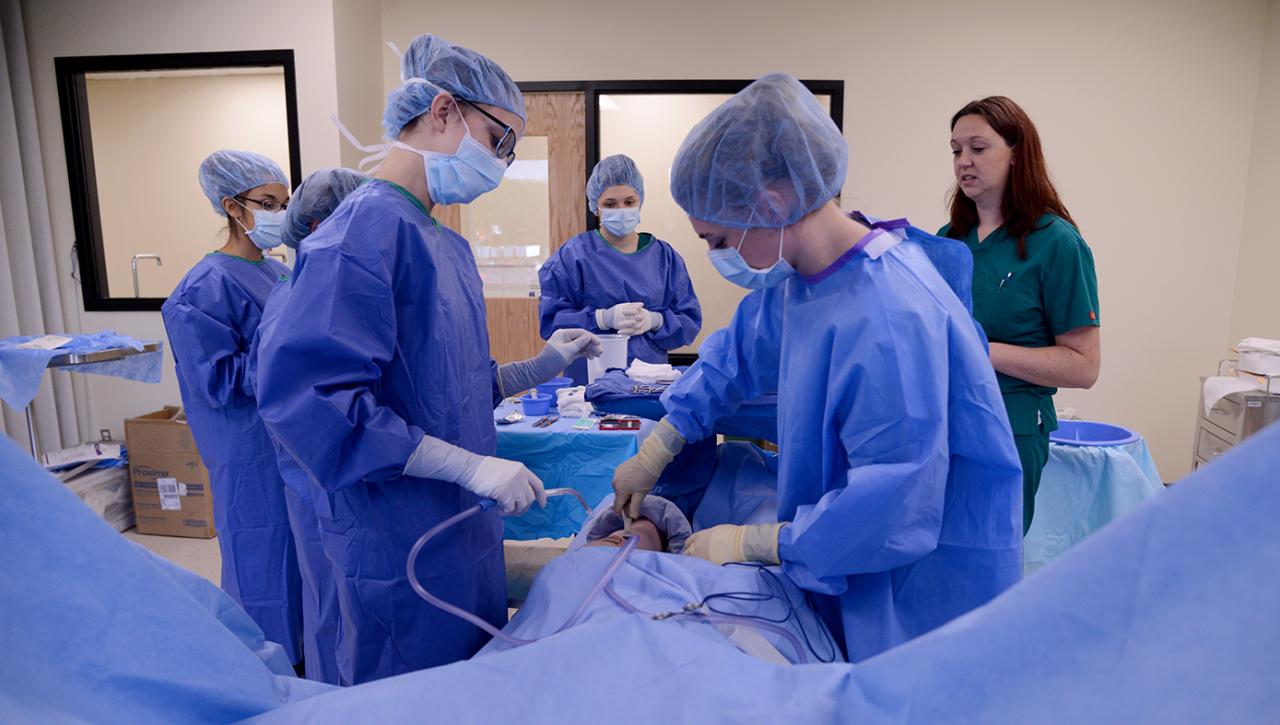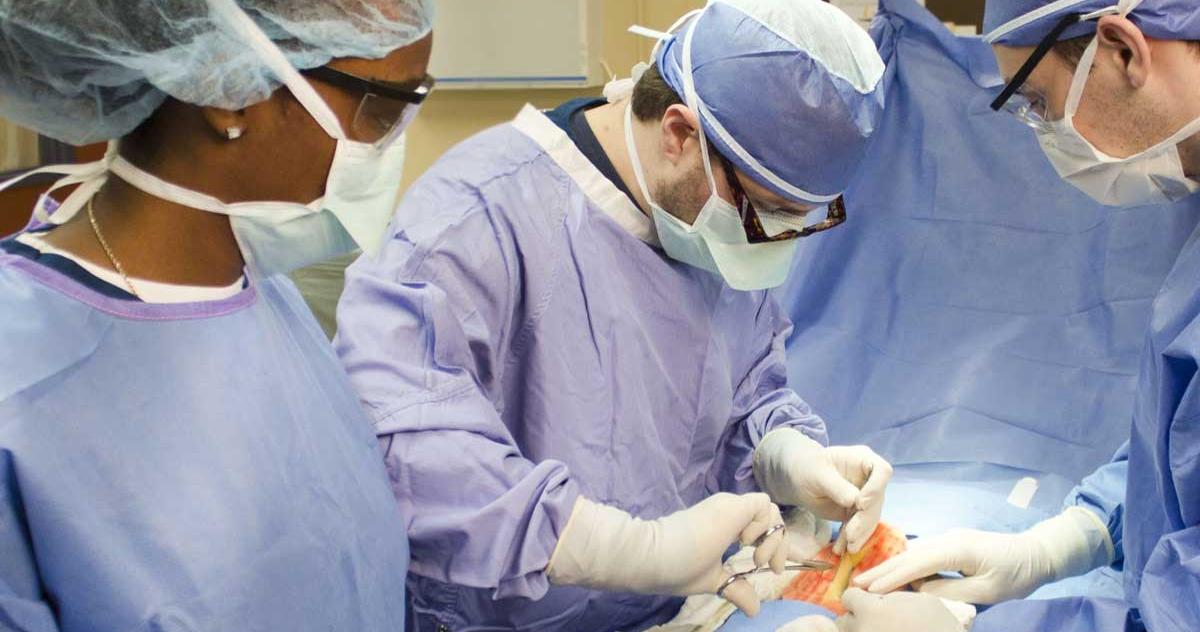Surgical tech program admission requirements and prerequisites can seem daunting, but understanding the process is key to a successful application. This guide breaks down everything you need to know, from educational qualifications and entrance exams to practical experience and application materials. We’ll explore the nuances of GPA requirements, prerequisite courses, and the importance of a compelling personal statement, helping you navigate this journey confidently.
We’ll cover common entrance exams like the TEAS, ACT, and SAT, and explain how different programs weigh these scores. You’ll also learn about the significance of observation hours, relevant work experience, and the application process itself. We’ll even look at how program requirements can vary between different institutions, giving you a comprehensive overview of what to expect.
Educational Requirements for Surgical Tech Programs
Getting into a surgical technology program requires meeting specific educational prerequisites. These vary slightly between institutions, but generally involve a high school diploma or equivalent, a minimum GPA, and completion of specific prerequisite courses. Let’s break down the details.
High School Diploma or Equivalent Requirements
Successful completion of a high school diploma or its equivalent (like a GED) is the foundational requirement for admission to most surgical technology programs. The specific requirements for high school completion might include minimum coursework credits and passing scores on standardized tests. Here’s a breakdown of common requirements:
| Requirement | Description | Typical Evidence Needed | Waiver Possibilities |
|---|---|---|---|
| High School Diploma or GED | Official documentation proving completion of secondary education. | Official transcript or GED certificate. | Generally, no waivers are available for this fundamental requirement. |
| Minimum Course Credits | Specific number of credits earned in core subjects (e.g., English, math, science). | Official high school transcript showing credit completion. | Some programs may consider life experience or alternative learning pathways on a case-by-case basis. |
| Standardized Test Scores (sometimes) | Scores from tests like the SAT or ACT may be required by some programs. | Official score reports from the testing agency. | Some programs may waive this requirement, especially if the applicant possesses a strong academic record or significant relevant experience. |
GPA Requirements for Surgical Tech Applicants
Most surgical technology programs have a minimum GPA requirement, typically ranging from 2.5 to 3.0 on a 4.0 scale. However, highly competitive programs might require a GPA significantly higher. The weight given to GPA varies; some programs might prioritize GPA more heavily than others, particularly if the applicant lacks relevant experience. For example, a program with a limited number of spots might favor applicants with higher GPAs even if other qualifications are comparable.
So, you’re looking at surgical tech program admission requirements and prerequisites? It’s a demanding but rewarding field. However, if the tech world calls to you, consider the financial aspects; check out this link for full stack developer salary expectations and job outlook to compare potential earnings. Then, you can weigh the pros and cons of each career path before finalizing your surgical tech program application.
Prerequisite Coursework for Surgical Tech Programs
Successful completion of prerequisite coursework is crucial for admission. These courses provide a foundational understanding of essential biological and anatomical concepts. A typical prerequisite curriculum might include:
A strong foundation in biology, anatomy, and physiology is essential for success in a surgical technology program. These courses provide the necessary understanding of the human body and its systems, which are critical for assisting surgeons during procedures.
Here’s a sample curriculum:
- Biology I and II (with labs)
- Anatomy and Physiology I and II (with labs)
- Medical Terminology
- Possible additional courses such as Microbiology or Chemistry depending on the program
Acceptance of College Credits from Previous Institutions
Many surgical technology programs accept transfer credits from accredited colleges or universities. The transfer credit process typically involves submitting official transcripts from previous institutions. The program’s admissions committee will then evaluate the credits to determine which courses are applicable to the surgical technology program requirements and will grant credit accordingly. The number of transferable credits varies between programs and is subject to the program’s specific policies.
It’s always best to contact the admissions office of the program you’re interested in to inquire about their specific transfer credit policy.
Entrance Exams and Standardized Testing

Getting into a surgical technology program often involves more than just good grades. Many programs use entrance exams to assess your readiness for the rigorous demands of the curriculum. These tests evaluate your academic skills and help programs select candidates most likely to succeed. Understanding these exams and their scoring expectations is crucial for a successful application.Many surgical technology programs require applicants to take standardized entrance exams to evaluate their academic preparedness.
So you’re looking at surgical tech program admission requirements and prerequisites? That’s a big step! It’s all about organization and planning, much like choosing the right tools for a project; for example, if you’re thinking of adding voiceovers to your podcast, you’ll need to research and select the perfect software, which is why checking out a guide on finding the right AI voice generator for podcasting might be helpful.
Back to surgical tech, remember to check the specific prerequisites for each program, as they vary. Good luck!
The most common exams include the Test of Essential Academic Skills (TEAS), the American College Testing (ACT), and the Scholastic Assessment Test (SAT). While some programs may accept one or more of these exams, others might have specific preferences or only accept one particular exam. The scores you achieve on these exams will significantly influence your admission chances.
Common Entrance Exams and Scoring Expectations
The TEAS, ACT, and SAT are all designed to measure different aspects of academic ability. The TEAS focuses heavily on the science and math skills crucial for surgical technology, while the ACT and SAT offer a broader assessment of reading, writing, and math skills. Each exam has its own scoring system and acceptable score ranges vary significantly between programs.
Minimum Acceptable Scores by Program, Surgical tech program admission requirements and prerequisites
It’s impossible to provide a definitive table of minimum acceptable scores because each program sets its own standards. These standards can also fluctuate year to year depending on the number of applicants and the average scores achieved. However, we can illustrate this with a hypothetical example:
| Program | TEAS Minimum Score | ACT Minimum Composite Score | SAT Minimum Total Score (Evidence-Based Reading and Writing + Math) |
|---|---|---|---|
| Program A | 70% | 24 | 1100 |
| Program B | 65% | 22 | 1050 |
| Program C | N/A | N/A | 1200 |
Note: “N/A” indicates that the program does not require that specific exam. These scores are purely hypothetical and should not be taken as representative of actual program requirements. Always check directly with the specific program for their most up-to-date entrance exam requirements.
Use of Entrance Exam Scores in Admission Decisions
Surgical technology programs use entrance exam scores as one factor among many in their holistic review process. They consider your GPA, prior coursework, relevant experience (if any), letters of recommendation, and your overall application. A high score on an entrance exam can significantly strengthen your application, particularly if other aspects of your application are less strong. Conversely, a low score might not automatically disqualify you, but it could make admission more challenging.
For example, a program might prioritize applicants with high TEAS scores in science and math sections if they are concerned about students’ ability to handle the demanding science-based curriculum. In essence, these scores help programs predict which candidates are best equipped to succeed in their rigorous training program.
Practical Skills and Experience

Landing a spot in a surgical technology program often hinges on more than just good grades. Admissions committees want to see evidence that you possess the practical skills and experience necessary to succeed in this demanding field. This section details the various ways you can demonstrate your readiness for the rigors of surgical technology training.
Observation Hours and Volunteer Experience
Observation hours and volunteer experience are crucial for demonstrating your commitment to the field and providing you with valuable firsthand exposure to the surgical environment. These experiences allow you to witness surgical procedures, interact with surgical teams, and gain a better understanding of the daily responsibilities of a surgical technologist. Suitable experiences include volunteering at hospitals, observing surgeries (with proper authorization), assisting in a doctor’s office, or shadowing a surgical technologist.
The more diverse your experiences, the stronger your application will be. For example, volunteering in a hospital’s operating room provides direct exposure to the surgical setting, while assisting a physician in a clinic allows you to learn about patient care and medical procedures. These experiences not only boost your application but also help you determine if surgical technology is the right career path for you.
Healthcare-Related Work Experience
Prior healthcare-related work experience significantly strengthens your application. It showcases your ability to work in a fast-paced, demanding environment and demonstrates your commitment to patient care. Relevant job experience can highlight skills such as teamwork, communication, and attention to detail—all essential for surgical technologists.
- Certified Nursing Assistant (CNA): CNAs provide direct patient care, developing skills in patient assessment, vital signs monitoring, and basic medical procedures.
- Medical Assistant: Medical assistants assist physicians with clinical and administrative tasks, gaining experience in patient interaction, medical record keeping, and sterilization techniques.
- Emergency Medical Technician (EMT): EMTs provide emergency medical care, honing skills in critical thinking, quick decision-making, and working under pressure.
- Phlebotomist: Phlebotomists collect blood samples, requiring precision, attention to detail, and adherence to infection control protocols.
- Hospital or clinic volunteer in a non-clinical role: Even non-clinical roles can demonstrate commitment and responsibility, showing you are capable of adhering to hospital protocols and working effectively as part of a team.
Prerequisite Certifications and Licenses
Some programs may require specific certifications or licenses as prerequisites for admission. These vary depending on the institution and program. While not always mandatory, having these certifications can make your application more competitive.
So you’re looking at surgical tech program admission requirements and prerequisites? It’s a competitive field, so good grades are key. But don’t underestimate the importance of strong computer skills; many programs now require familiarity with medical software, so checking out some helpful IT courses might give you a leg up. Ultimately, meeting the surgical tech program admission requirements and prerequisites will set you on the path to a rewarding career.
| Certification/License | Description | Relevance to Surgical Technology |
|---|---|---|
| Certified Nursing Assistant (CNA) | Provides basic patient care. | Demonstrates understanding of patient care and hospital environment. |
| Emergency Medical Technician (EMT) | Provides emergency medical care. | Highlights skills in critical thinking and emergency response. |
| Phlebotomy Technician | Collects blood samples. | Shows attention to detail and sterile technique. |
| Basic Life Support (BLS) Certification | Demonstrates competency in CPR and basic life support. | Essential for safety in surgical settings. |
Assessment of Practical Skills and Experience
Surgical technology programs assess applicants’ practical skills and experience through various methods. These may include reviewing resumes and application materials, conducting interviews, requiring letters of recommendation from supervisors or healthcare professionals who can attest to the applicant’s skills and experience, and potentially even a skills assessment or practical exam during the admissions process. Strong letters of recommendation highlighting specific instances of initiative, teamwork, and problem-solving skills in a healthcare setting are particularly valuable.
A well-structured resume clearly outlining relevant work experience and volunteer hours, using action verbs and quantifiable achievements, will also help showcase your abilities effectively.
Application Process and Materials: Surgical Tech Program Admission Requirements And Prerequisites

Applying to a surgical technology program involves several key steps and requires careful preparation of various application materials. Understanding the process and assembling a strong application package significantly increases your chances of acceptance. This section will guide you through the typical application process and highlight the importance of each component.
So you’re thinking about applying to a surgical tech program? Admission requirements usually include a high school diploma or equivalent, plus specific science prerequisites. But before you dive into anatomy and physiology, maybe check out some cool tech – like the high-quality drone camera systems used in medical research. Then, get back to focusing on those surgical tech program admission requirements and prerequisites; you’ll need them to ace those applications!
The Typical Application Process: A Step-by-Step Guide
The application process generally follows a similar pattern across different programs, although specific requirements may vary. Expect to navigate these key steps:
- Research Programs: Thoroughly investigate programs that align with your career goals and location preferences. Consider factors such as program length, accreditation, clinical affiliations, and faculty expertise.
- Check Admission Requirements: Carefully review each program’s specific admission requirements. These often include minimum GPA, prerequisite coursework, and standardized test scores (if applicable).
- Gather Application Materials: Compile all necessary documents, including transcripts, letters of recommendation, personal statement, and any required forms. Ensure all documents are complete and accurately reflect your qualifications.
- Complete the Application Form: Fill out the application form meticulously, ensuring accuracy and completeness. Proofread carefully before submitting.
- Submit Application and Materials: Submit your completed application and all supporting materials according to the program’s deadlines. Keep copies of everything for your records.
- Interview (If Required): Many programs conduct interviews as part of the selection process. Prepare for common interview questions and showcase your enthusiasm and suitability for the program.
- Acceptance and Enrollment: If accepted, carefully review the acceptance letter and follow the instructions for enrollment and registration.
Common Application Materials
Programs typically require several key documents to assess your suitability. These include:
- Application Form: A standardized form requesting personal information, educational history, and work experience.
- Transcripts: Official transcripts from all colleges and universities attended, demonstrating academic performance.
- Letters of Recommendation: Typically two or three letters from individuals who can attest to your skills, character, and potential for success in the program. These often come from professors, supervisors, or mentors who know you well.
- Personal Statement/Essay: A written statement allowing you to showcase your personality, motivations, and aspirations. This is a crucial component of your application.
- Resume/Curriculum Vitae (CV): A summary of your educational background, work experience, volunteer activities, and other relevant achievements.
Crafting a Compelling Personal Statement
Your personal statement is your opportunity to distinguish yourself from other applicants. It should be well-written, concise, and compelling, showcasing your:
- Motivation: Clearly articulate your reasons for pursuing a career in surgical technology. Explain your passion for the field and what drives your interest.
- Relevant Skills and Experiences: Highlight any relevant skills or experiences that demonstrate your suitability for the program. This could include volunteer work, shadowing experiences, or related coursework.
- Personal Qualities: Showcase personal attributes such as teamwork, communication skills, attention to detail, and ability to work under pressure. Provide specific examples to illustrate these qualities.
- Career Goals: Briefly Artikel your career aspirations within surgical technology and how the program will help you achieve them.
For example, a strong personal statement might describe a specific experience shadowing a surgical technologist that solidified the applicant’s interest in the field, followed by a discussion of relevant skills developed through volunteer work or part-time jobs.
The Importance of Letters of Recommendation
Letters of recommendation provide external validation of your abilities and character. Recommenders should highlight:
- Academic Performance: For academic recommenders, this might include grades, work ethic, and intellectual curiosity.
- Professional Skills: For professional recommenders, this might include work ethic, teamwork, problem-solving abilities, and communication skills.
- Personal Qualities: Recommenders should emphasize positive personal traits such as reliability, responsibility, and dedication.
- Suitability for the Program: The letter should clearly state why the recommender believes you are a good fit for the surgical technology program.
It is crucial to select recommenders who know you well and can speak to your qualifications in a positive and detailed manner. Provide them with ample time to write a strong letter and offer them any relevant information that may be helpful.
Program-Specific Requirements and Variations
Surgical technology programs, while sharing a core curriculum, exhibit significant variations in their admission requirements. These differences stem from the program’s setting (community college versus hospital-based program), the institution’s specific policies, and the overall program goals. Understanding these variations is crucial for applicants to target their applications effectively and increase their chances of acceptance. This section will explore these differences and provide examples to illustrate the range of requirements you might encounter.
Admission requirements can differ dramatically depending on whether you apply to a community college or a hospital-affiliated program. Community college programs often have more open admissions policies, focusing on general academic prerequisites like a high school diploma or GED and a minimum GPA. Hospital-based programs, however, tend to be more selective, often requiring prior healthcare experience, specific prerequisite courses, and higher GPA thresholds.
Furthermore, the specific requirements can vary even within these categories, as individual institutions have their own unique admission criteria.
Variations in Surgical Technology Program Requirements
Several factors contribute to the diverse range of admission requirements across different surgical technology programs. It’s essential to research individual programs thoroughly.
- Prior Healthcare Experience: Some programs require documented experience as a Certified Nursing Assistant (CNA), medical assistant, or in a similar role. Others may not require any prior healthcare experience but may give preference to applicants with relevant background.
- Specific Prerequisite Courses: Certain programs mandate the completion of specific courses, such as anatomy and physiology, microbiology, or medical terminology, before admission. Others might accept equivalent coursework from different institutions.
- Minimum GPA Requirements: The minimum GPA needed for admission varies widely. Some programs may accept applicants with a GPA as low as 2.0, while others require a 3.0 or higher.
- Entrance Exams: Some programs require standardized tests like the TEAS (Test of Essential Academic Skills) or the HESI (Health Education Systems, Inc.) entrance exam. The minimum score required varies significantly between programs.
- Criminal Background Checks: All programs require a background check as a condition of enrollment. The specific requirements for this process may differ, with some programs having stricter standards than others.
- Interviews: While not universally required, some programs incorporate an interview as part of the admission process. The interview may assess the applicant’s suitability for the profession, communication skills, and overall demeanor.
Comparative Analysis of Admission Criteria
The following table compares the admission criteria of three hypothetical surgical technology programs:
| Program | Minimum GPA | Prerequisite Courses | Healthcare Experience | Entrance Exam |
|---|---|---|---|---|
| Community College A | 2.5 | Anatomy & Physiology I | None required | TEAS (minimum score 60%) |
| Hospital-Based Program B | 3.0 | Anatomy & Physiology I & II, Microbiology | 1 year CNA experience | HESI (minimum score 75%) |
| Private Vocational School C | 2.8 | Medical Terminology | 6 months healthcare experience preferred | None required |
Hypothetical Case Study: Applicant Outcomes
Let’s consider three applicants:* Applicant 1: Holds a 3.5 GPA, completed Anatomy & Physiology I & II, Microbiology, and has one year of experience as a CNA. This applicant would likely be a strong candidate for all three programs, particularly Program B.* Applicant 2: Has a 2.7 GPA, completed Anatomy & Physiology I, and has six months of experience as a medical assistant.
This applicant might be accepted by Program A and possibly Program C, but Program B is less likely due to the higher GPA and experience requirements.* Applicant 3: Has a 2.0 GPA and no prior healthcare experience. This applicant is unlikely to be accepted by Program B, and acceptance by Programs A and C would depend on the specific policies regarding minimum GPA and the availability of spots.
Closure

Landing a spot in a surgical technology program requires careful planning and preparation. By understanding the admission requirements and prerequisites, you can create a strong application that showcases your skills and dedication. Remember to thoroughly research specific programs, tailor your application materials, and highlight your relevant experience. With diligent effort and a clear understanding of the process, you’ll significantly increase your chances of acceptance into your dream program.
Good luck!
Answers to Common Questions
What if I don’t meet the minimum GPA requirement?
Many programs consider other factors beyond GPA, such as strong letters of recommendation and relevant experience. Contact the program directly to discuss your situation.
Are observation hours required?
While not always mandatory, observation hours are highly recommended and often strengthen your application. They demonstrate your interest and understanding of the field.
Can I transfer college credits?
Yes, many programs accept transfer credits. Check with the specific program for their policies and acceptable courses.
How important is the personal statement?
Your personal statement is crucial. It’s your chance to showcase your personality, motivations, and suitability for the program. Make it compelling and well-written.